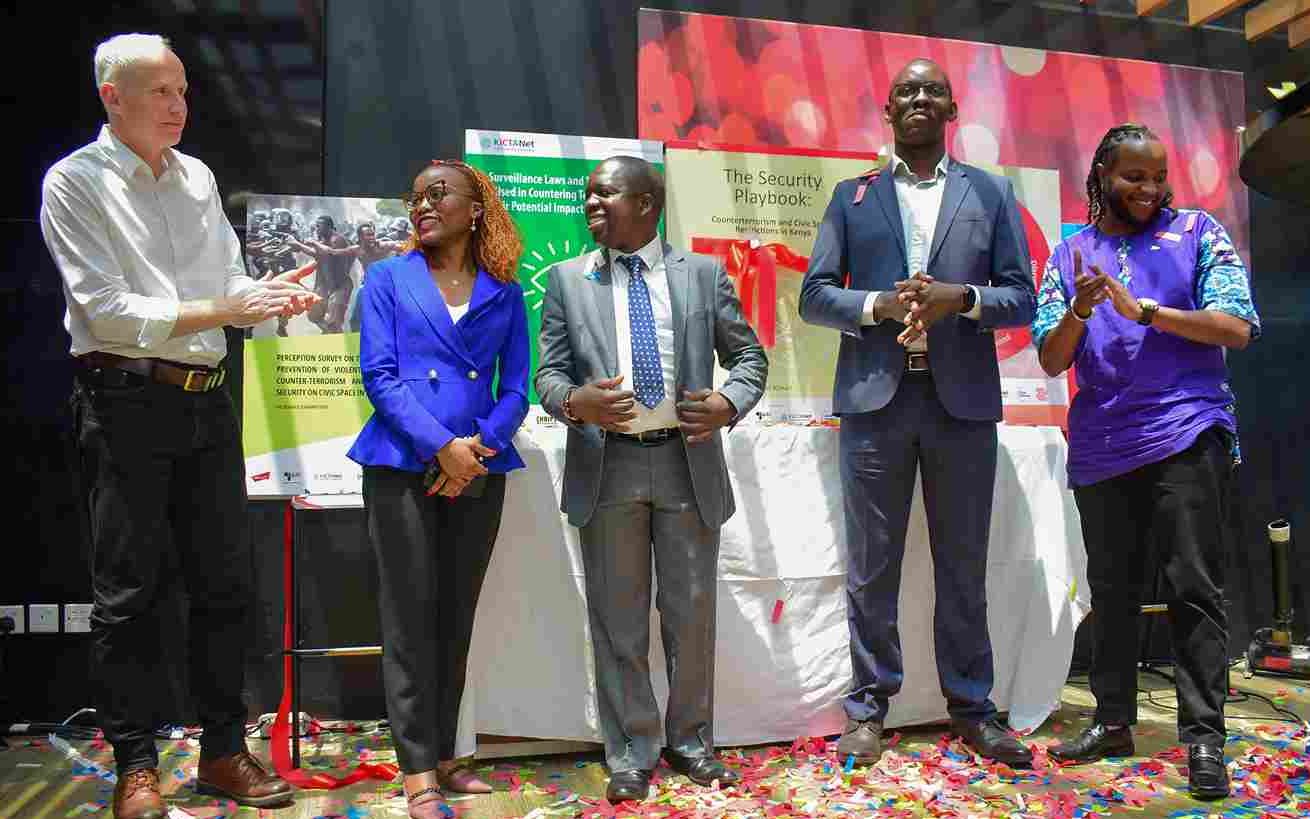Kenyan researchers have unveiled a damning reports exposing the detrimental impact of the government’s national security and counterterrorism measures on the country’s civic space.
The multi-part research, conducted by ARTICLE 19 Eastern Africa, Kenya ICT Action Network (KICTANet), The Centre for Human Rights and Policy Studies (CHRIPS) and HAKI Africa, reveals widespread harm inflicted on human rights and fundamental freedoms.
This research comes at a crucial time for Kenya, as the country grapples with balancing security concerns with upholding human rights and democratic values.
The focus of the reports was on “The Impact of the Prevention of Violence Extremism (PVE), Counter-Terrorism, and National Security Measures on Civic Space in Kenya.”
The specific report from KICTANet is titled “Surveillance Laws and Technologies Used in Countering Terrorism and their Potential Impact on Civic Space.”
The paper examines the ramifications of Counter-Terrorism (CT), the Prevention of Violent Extremism (PVE), and similar national security measures in Kenya. The objective is to foster greater accountability for violations and advocate for an open civic space, free from unwarranted restrictions under the pretext of security.
RELATED
The recommendations offered by the researchers pave the way for a more rights-respecting approach to security, ensuring a vibrant and engaged civil society can contribute to a peaceful and prosperous Kenya.
Key findings highlight how these measures have:
- Shrunk civic space: Laws and regulations aimed at tackling terrorism have negatively impacted civil society organizations, restricting their activities and operations.
- Undermined human rights defenders: Individuals advocating for human rights face harassment and persecution due to the restrictive security environment.
- Contributed to human rights violations: The research documented instances where security measures infringed on freedoms of expression, association, and privacy.
The report calls for urgent action from various stakeholders:
- Civil society: Gather and publish evidence of human rights abuses linked to counterterrorism measures.
- Government: Review and reform laws and regulations to ensure they are risk-based, targeted, and proportionate, respecting fundamental rights.
- Private sector: Develop ethical guidelines and human rights policies to prevent their products and services from facilitating abuse.
- Donors: Provide flexible funding to support activists and advocate for the reform of security laws.
![]()




